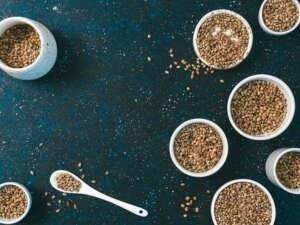Degenerative disc disease, herniated discs, and bulging discs are common spinal issues that often result in pain and limited mobility. While medical treatments and physical therapy are primary approaches, nutrition can play a vital role in promoting disc health and easing symptoms. This article explores how key nutrients can support spinal health, combat inflammation, and aid recovery.

The Connection Between Nutrition and Disc Health
Intervertebral discs act as cushions between spinal vertebrae, absorbing shock and maintaining flexibility. Composed of water, collagen, and proteoglycans, their functionality declines due to dehydration, inflammation, or nutrient deficiencies. By focusing on nutrition, you can:
- Enhance Hydration: Proper water intake and hydrating foods maintain the discs’ cushioning properties.
- Reduce Inflammation: Anti-inflammatory foods alleviate pain and swelling associated with disc degeneration.
- Support Collagen Synthesis: Nutrients that encourage collagen production to strengthen and repair spinal discs.
- Promote Bone and Muscle Health: A balanced diet contributes to the overall stability of the spine.
Essential Nutrients for Disc and Spinal Health

1. Omega-3 Fatty Acids: Anti-Inflammatory Powerhouses
- Benefits: Omega-3s are highly effective in reducing inflammation, which is a significant factor in spinal pain and discomfort.
- Sources: Fatty fish (salmon, mackerel), walnuts, chia seeds, and flaxseeds.
2. Vitamin D and Calcium: For Bone Integrity
- Benefits: Both nutrients are essential for strong bones that provide structural support to intervertebral discs.
- Sources: Vitamin D is found in fortified dairy, egg yolks, and sunlight, while calcium is abundant in leafy greens, almonds, and tofu.
3. Collagen and Vitamin C: For Disc Repair
- Benefits: Collagen strengthens spinal discs, while Vitamin C aids collagen production and tissue repair.
- Sources: Collagen from bone broth and Vitamin C from citrus fruits, bell peppers, and strawberries.
4. Magnesium: For Muscle Relaxation
- Benefits: Magnesium helps reduce muscle spasms and tension around the spine, alleviating discomfort.
- Sources: Spinach, nuts, seeds, and whole grains.
5. Antioxidants: Protecting Spinal Tissues
- Benefits: Antioxidants combat oxidative stress, slowing the progression of disc degeneration.
- Sources: Berries, green tea, dark chocolate, and colourful vegetables like kale and bell peppers.
Foods to Include for Healthy Spinal Discs
- Hydrating Foods: Watermelon, cucumber, and broth-based soups maintain hydration.
- Lean Proteins: Chicken, turkey, tofu, and legumes repair tissues and support spinal structure.
- Whole Grains: Brown rice, quinoa, and oats provide nutrients for bone and muscle strength.
- Anti-inflammatory Spices: Turmeric and ginger combat pain and inflammation naturally.
Foods to Limit or Avoid
- Processed Foods: High in trans fats and sugar, they can worsen inflammation.
- Excess Salt: Reduces hydration levels, negatively impacting disc health.
- Sugary Drinks: Increase inflammation; opt for water or herbal teas instead.
Lifestyle Tips for Spinal Health
- Stay Hydrated: Drink adequate water daily to maintain disc hydration.
- Exercise Regularly: Engage in low-impact activities like yoga or swimming to strengthen spinal muscles and reduce stress on discs.
- Maintain a Healthy Weight: Reducing excess weight eases pressure on the spine.
Final Thoughts
Nutrition plays a pivotal role in supporting spinal health, especially for conditions like degenerative disc disease and herniated discs. By incorporating anti-inflammatory and nutrient-rich foods, you can complement medical treatments and improve your overall quality of life. Always consult a healthcare professional or dietitian before making significant dietary changes to address specific health needs.


